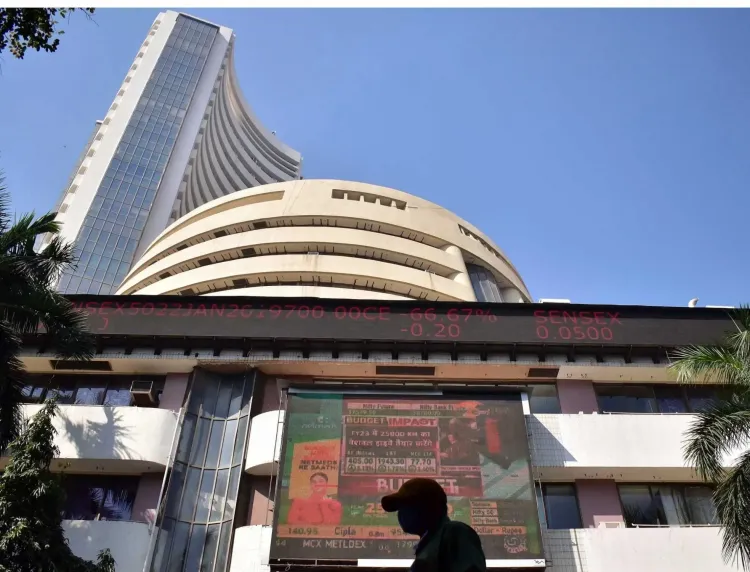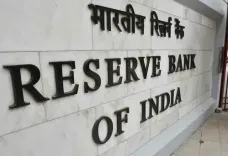How Did the Indian Stock Market End the Week?

Synopsis
Key Takeaways
- Indian equity benchmarks ended the week on a high note.
- Nifty 50 closed above the psychologically significant 25,000 mark.
- Institutional buying from FIIs and DIIs boosted market sentiment.
- Geopolitical tensions created midweek volatility.
- The RBI's policies supported financial stocks and market confidence.
Mumbai, June 21 (NationPress) The Indian equity benchmarks concluded the week on a strong note, successfully surpassing a vital resistance level, aided by persistent institutional buying, analysts noted on Saturday.
The Nifty 50 confidently closed above the psychologically important 25,000 mark on Friday, highlighting a bullish trend. By the end of trading, the Sensex soared by 1,046.30 points or 1.29%, settling at a new peak of 82,408.17, while the Nifty 50 rose by 319.15 points or 1.29%, ending at 25,112.40.
“Uninterrupted inflows from institutional investors — including Foreign Institutional Investors (FIIs) and Domestic Institutional Investors (DIIs) — served as significant support, countering the challenges posed by ongoing geopolitical tensions and bolstering positive market sentiment,” according to a report by Bajaj Broking Research.
The Nifty Index created a considerable bull candle with a higher high and low, indicating a resumption of upward movement following recent corrective consolidation. The index firmly closed above the 25,000 levels, demonstrating strength.
“Looking ahead, we expect the index to revisit the upper edge of the recent five-week consolidation zone, currently around the 25,200 mark. A decisive breakthrough above this resistance could pave the way for an upward extension toward the 25,500 zone in the near future,” the report indicated.
The Indian stock market dismissed midweek fluctuations caused by increasing tensions in the Middle East and a sharp rise in crude oil prices.
The Reserve Bank of India’s easing of project financing norms provided a boost to financial stocks.
“The RBI’s ongoing dovish stance — hinting at potential rate cuts if inflation remains subdued — has further strengthened market confidence, positioning monetary policy as a crucial stabilizing force amid global uncertainty,” explained Vinod Nair, Head of Research at Geojit Investments Ltd.
Crude prices surged early in the week due to geopolitical unrest, raising concerns over inflation. However, the growth rate of oil prices significantly slowed after the initial spike, alleviating fears of a sustained inflationary increase.
Investor sentiment towards the pharmaceutical sector has turned cautious due to the proposed implementation of new tariffs, analysts suggest.
As the deadline for a 90-day pause on reciprocal tariffs approaches, markets are closely monitoring trade negotiations and expected deal-making activities over the next fortnight.
“Meanwhile, geopolitical uncertainty persists, as comments from global leaders regarding potential military involvement in the Middle East keep markets anxious. Investors will also be attentive to upcoming U.S. GDP and PCE data, along with India’s PMI figures, for insights on the strength and trajectory of economic recovery both domestically and internationally,” Nair added.








